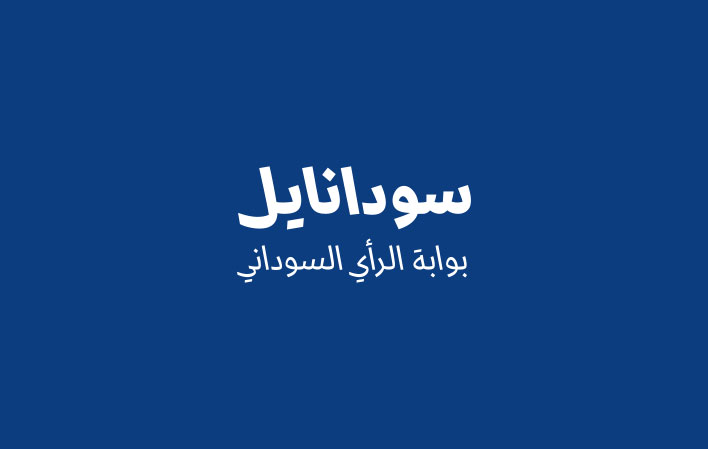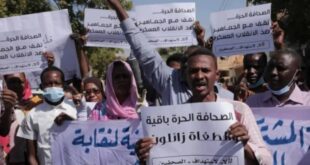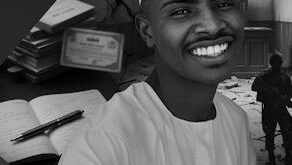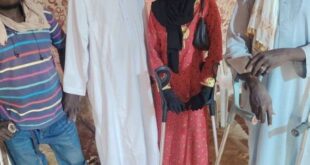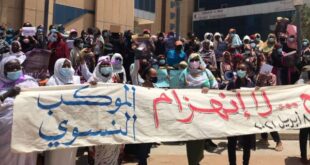عقدت مؤسسة ماعت للسلام والتنمية وحقوق الإنسان بالتعاون مع المجلس الاقتصادي والاجتماعي والثقافي للاتحاد الأفريقي، الحوار الثالث حول خارطة الطريق لمنظمات المجتمع المدني الأفريقية في السودان، لمناقشة الأحداث المتصاعدة الجارية في السودان بين القوات المسلحة السودانية وقوات الدعم السريع؛ وذلك بحضور منظمات المجتمع المدني والمنظمات غير الحكومية وأصحاب المصلحة الآخرين من السودان لمعرفة ما هي الاحتياجات الملحة على الأرض، وقد أدار الحوار السيد عبد الرحمن باشا عضو في شركاء من أجل الشفافية، ومدير وحدة التنمية المستدامة في مؤسسة ماعت للسلام والتنمية وحقوق الإنسان، والذي أشار أن مؤسسات المجتمع المدني السودانية تعتبر من المنظمات الأكثر نشاطاً وأكد علي أهمية الحصول على رؤية واقعية عن تفاصيل الازمة السياسية والامنية في السودان.
وخلال الحوار أكد السيد خالد بودالى، رئيس المجلس الاقتصادي والاجتماعي والثقافي الأفريقي، أن مجلس الايكوسك الأفريقي لا يمكنه أن يعتمد مشروع عمل بدون مطالبة منظمات المجتمع المدني للتدخل وعرض رؤيتها عن الوضع في السودان، مشيرا ان منظمات المجتمع المدني السودانية لهم من حنكة في التعامل مع المنظمات العالمية والمانحين، وهو ما يمكنهم أن يعملوا مع منظمات المجتمع الدولي لدعم المجتمع السوداني وما يحدث بداخله من تغيرات. وأكد بوادلي أن تلك المؤسسات تدعم تحقيق الحوكمة المحلية والحكم الرشيد ومراعاة الأولويات الوطنية، حيث أن جهودنا يجب أن تركز على تعزيز التحول الديمقراطي في السودان.
فيما تناول السيد أفولابي أوبالولا تيموثي، عضو في منظمة العفو الدولية والبرلمان الأفريقي للقادة الشباب ومساعدة منصة الشباب لمكنتب الرئيس الافريقي في نيجيريا، قضية اللاجئين حيث أن الحكومة النيجيرية بالاشتراك مع منظمة “إيبيس” وهي منظمة موجودة في نيجيريا، استقبلت مواطنين سودانيين في نيجيريا، و تقديم 100 ألف نايرا نيجيرية لدعم استقرارهم في البلاد مرة أخرى، إضافة إلى ذلك أن الدعم قد يكون في شكل غذاء أو دعم معنوي، وهو أحد أشكال الدعم بين الدول والمنظمات الأفريقية وبعضها البعض، مؤكدا على ضرورة تحقيق التعاون والتآزر الأفريقي.
ومن جانبها أوضحت آسيا الجعفري؛ صحفية ومدافعة عن حقوق الإنسان والمديرة المهنية لمركز “عزة للإعلام المهني”، أوضاع الصحفيين في السودان، فقد أُغلقت مكاتب البي بي سي- BBC والجزيرة، كما تعرض عدد من الصحفيين للاحتجاز التعسفي، وتم احتجاز المهندس المسئول عن بث إذاعات إف إم، ثم تم إغلاق المقر على يد قوات الدعم السريع، بالإضافة إلي وجود خطاب كراهية موجه نحو الصحفيين من قبل طرفي النزاع بحجة رفضهم لهذا النوع من التغطية الصحفية.
وأشارت “الجعفري” أن إعلان جدة، لم يضمن حقوق الصحفيين وحمايتهم أمام تصرفات قوات الدعم السريع، وطالبت بالضغط على الحكومة في السودان للتوقيع على اتفاقية مناهضة التعذيب، بهدف حماية الصحفيين وإصدار إعلان على غرار إعلان جدة ينص على دعم وحماية الصحفيين في السودان.
بينما أوضحت رقية جيلاني؛ باحثة وناشطة في عدد من مبادرات المجتمع المدني بالسودان، أهمية المبادرات والحركات الاجتماعية في السودان في ظل الحرب، حيث ظهرت مبادرات متعددة منها، “أمننا وسلامنا” والتي تدعم المتضررين من الأوضاع من النساء السودانيات، كما ظهرت مبادرة استهدفت عمل مسح شامل للمتضررين وما تعرضوا له من سرقة ونهب على اثر النزاع، وقد أخرجت وكالة “انتر نيوز” تقرير حول المشاكل والاحتياجات التي تواجهها النساء في السودان وقد تم تجميع تلك المعلومات من مساحات شعبية تحمل معلومات دقيقة، كما رصدت أيضا احتياجات الناس الانسانية كالوصول للمأوى والغذاء والرعاية الصحية.
ودعت “جيلاني” بضرورة العمل على إنشاء برنامج كامل لتمويل الضحايا من قبل مساعدات المانحين الخارجيين، وإشراك الضحايا أنفسهم في تصميم البرامج التعويضية، لما سيكون لهم من رؤية عميقة حول احتياجاتهم الواقعية في مجال التعويضات.
فيما دعا باسكال توريه؛ الاتحاد الافريقي لدراسة المجتمع السوداني من الداخل، لمحاولة تقديم الدعم اللازم للسودانيين حتى لا تؤثر الأزمة في السودان على كافة الدول الأفريقية، كما دعا لتكوين مجموعة موحدة للخروج بتوصيات لحل القضية.
بينما تناول سيف الدين سليمان؛ صحفي ومدير المكتب الإقليمي لمركز الخرطوم الدولي لحقوق الإنسان في السودان التحديات الملحة التي يواجهها الداخل السوداني حاليا وهم 7 تحديات منها الحماية والأمن حيث لا توجد ممرات آمنة لتوصيل الدعم للمواطنين، كما أن المواطنين يتعرضون للحجز التعسفي وارتكاب جرائم ضد الإنسانية و العاملين بمنظمات المجتمع المدني، فضلا عن التحديات المتعلقة بالمآوي والإيواء والماء والغذاء وأيضا الرعاية الصحية حيث ان الجرحى والقتلى قد زادت أعدادهم، وقد خرجت عدد من المستشفيات عن الخدمات، إضافة لعدم قدرة بعض المواطنين على الوصول للمستشفيات لتلقي الرعاية في حالة المرض والاصابة، بالإضافة إلي تحديات تتعلق التعليم والأمن الاقتصادي، والإغاثة الإنسانية.
وقد أكد السيد راشد من مكتب سكرتارية الإيكو سوك، على المشاركين بموافاة السكرتارية والأمانة العامة للإيكوسوك بكافة المعلومات والتفاصيل ليتم ارفاقها في ورقة سياسات رسمية حول الأمن السودان.
Maat, in Cooperation with the African ECOSOCC, Holds an Interactive Dialogue on Setting a Roadmap for the Situation in Sudan
Maat for Peace, Development and Human Rights, in cooperation with the African Union Economic, Social and Cultural Council (ECOSOCC), held the third interactive dialogue on the establishment of a road map for African civil society organizations in Sudan, to discuss the escalating clashes in Sudan between the Sudanese Armed Forces and the Rapid Support Forces (RSF) and define the urgent needs, in the presence of a number of CSOs, NGOs, among other stakeholders from Sudan. The discussion was moderated by Mr. Abdul Rahman Pasha, a member of Partners for Transparency, and Director of the Sustainable Development Unit at Maat for Peace, Development and Human Rights, who indicated that Sudanese civil society organizations are very active and effective, stressing the importance of getting a deep insight into the details of the political and security crisis in Sudan.
During the dialogue, Mr. Khalid Boudali, President of the African Economic, Social and Cultural Council, stressed that the African ECOSOCC Council cannot adopt a project draft without referring to CSOs and seeking their insights and evaluation of the situation in Sudan, noting that Sudanese CSOs have experience in communication with global organization and donors, which can work with the organizations of the international community to support the Sudanese society and control the changes taking place therein. Boudali stressed that these institutions support the achievement of local and good governance while taking into account national priorities, mainly promoting democratic transition in Sudan.
Mr. Afolabi Timothy Obalola, a member of Amnesty International and the African Parliament for Young Leaders and the Youth Platform Assistance to the Office of the African President in Nigeria, touched upon the issue of refugees, indicating that the Nigerian government, in conjunction with Ibis, an organization present in Nigeria, received Sudanese citizens in Nigeria and allocated 100,000 Nigerian Nairas to support their stability in the country again. In addition, the support provided may take the form of food or moral support, stressing the need to achieve African cooperation and synergy.
For her part, Asia Al-Jaafari, a Journalist, human rights defender, and Executive Director of Azza Center for Professional Media in Sudan, explained the situation of journalists in Sudan, as the BBC offices and Al-Jazeera channels were shut down and a number of journalists were subjected to arbitrary detention. Furthermore, a radio broadcast engineer was arrested by RSF which also closed the headquarters. All these violations are going on amidst an atmosphere of hate speech against journalists by both parties to the conflict under the pretext of their rejection of this type of press coverage.
Al-Jaafari indicated that the Jeddah Declaration did not guarantee the rights and protection of journalists, and called for pressure on the government in Sudan to sign the Convention against Torture, with the aim of protecting journalists and issuing a declaration similar to the Jeddah Declaration providing for the support and protection of journalists in Sudan.
Rokaya Gilani, a researcher and activist in a number of civil society initiatives in Sudan, highlighted the importance of social initiatives and movements in Sudan amidst the current war, such as “Our Security and Peace” initiative that support Sudanese women affected by the situation, and another initiative aimed at conducting a comprehensive survey of people affected in any form including theft and looting as a result of the conflict. The “Inter News” agency issued a report on the problems and needs faced by women in Sudan. This information was collected from popular spaces that carry accurate information. It also monitored people’s human needs such as access to shelter, food, and health care.
“Gilani” called for the need to work on establishing a complete program to fund the victims with the assistance of external donors, and to get them involved in designing compensatory programs, given their deep and realistic view of the needs in the field of compensation.
Pascal Touré called on the African Union to have a deeper look at the inside of the Sudanese society to try to provide the necessary support so that the crisis in Sudan does not affect all African countries, in addition to calling for the formation of a unified group to come up with recommendations to solve the issue.
While Saif Al-Din Suleiman, journalist and Director of the Regional Office of the Khartoum International Center for Human Rights in Sudan, addressed the urgent 7 challenges that the Sudanese interior is currently facing; including lack of protection and security, as there are no safe passages to deliver support to citizens; arbitrary detention and crimes against humanity that affect both civilians and CSOs workers; shelter, water, food, and health care-related challenges, given the sharp rise in injuries and deaths and the increasing numbers of hospitals that were out of service thus undermining some citizens abilities to reach hospitals to receive care in case of illness and injury; in addition to challenges related to education, economic security, and humanitarian relief.
Mr. Rashed from the ECOSOCC Secretariat office affirmed the need for all participants to provide the Secretariat and the ECOSOCC General Secretariat with all information and details needed to be included in an official policy paper on security in Sudan.
Regards
Media Unit Coordinator
Headquarters: 148 Masr Helwan El Zyraei Rd,El Matbaa Sq, Hadayeq El Maadi, 4th Floor, No 41, Cairo, Egypt
Maat Training Center : 380 Corniche El Nil St., Gawharet El Maadi Tower,38th Floor, Tower B, Cairo, Egypt
P.O.Box: 490 El Maadi | Telefax. : 00 (20) (2) 25344706/7 | Mobile: 00 (2) (0) 1277392939
Email: maat@maatpeace.org | info@maatpeace.org Website: www.maatpeace.org
Organization in special consultative status with the Economic and Social Council since 2016
 سودانايل أول صحيفة سودانية رقمية تصدر من الخرطوم
سودانايل أول صحيفة سودانية رقمية تصدر من الخرطوم
